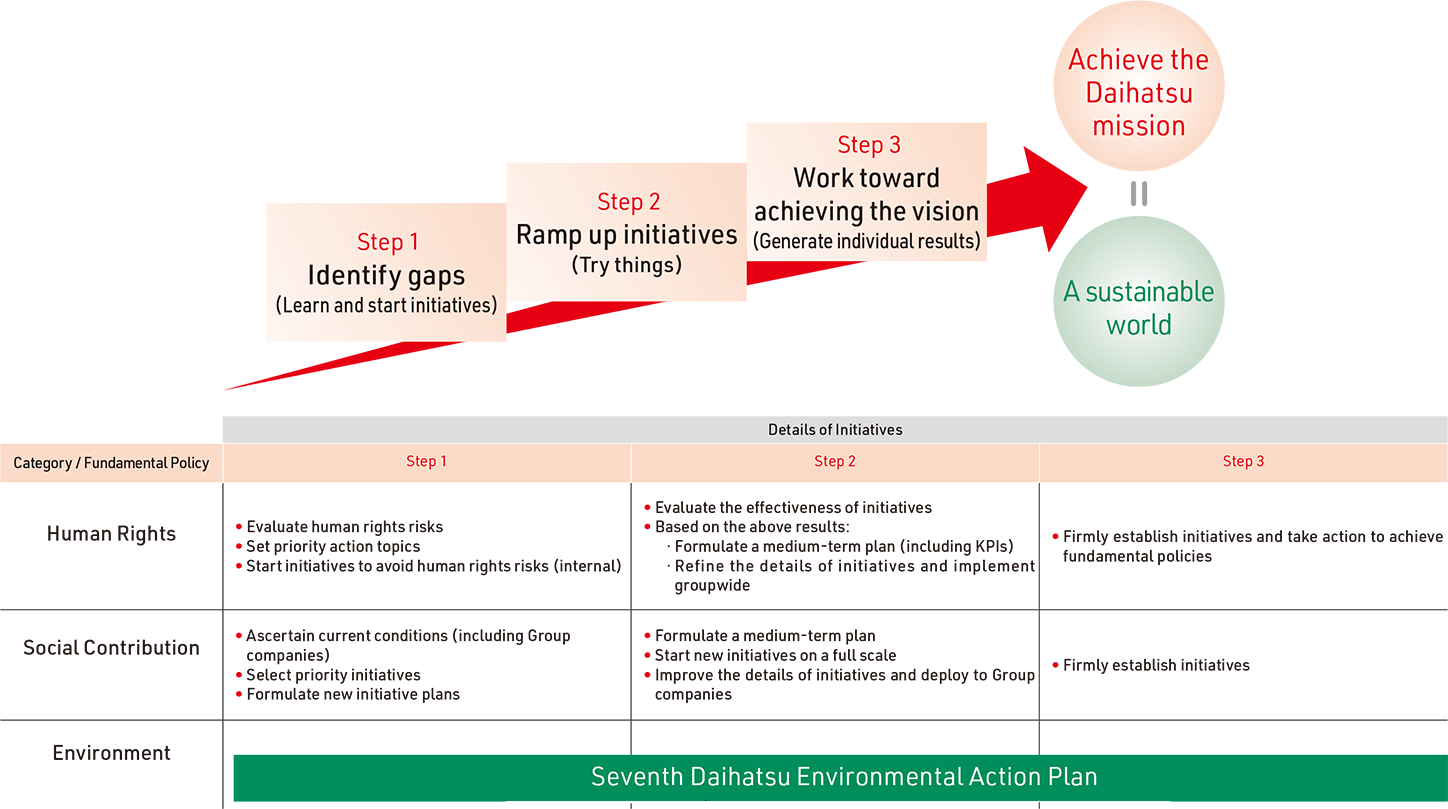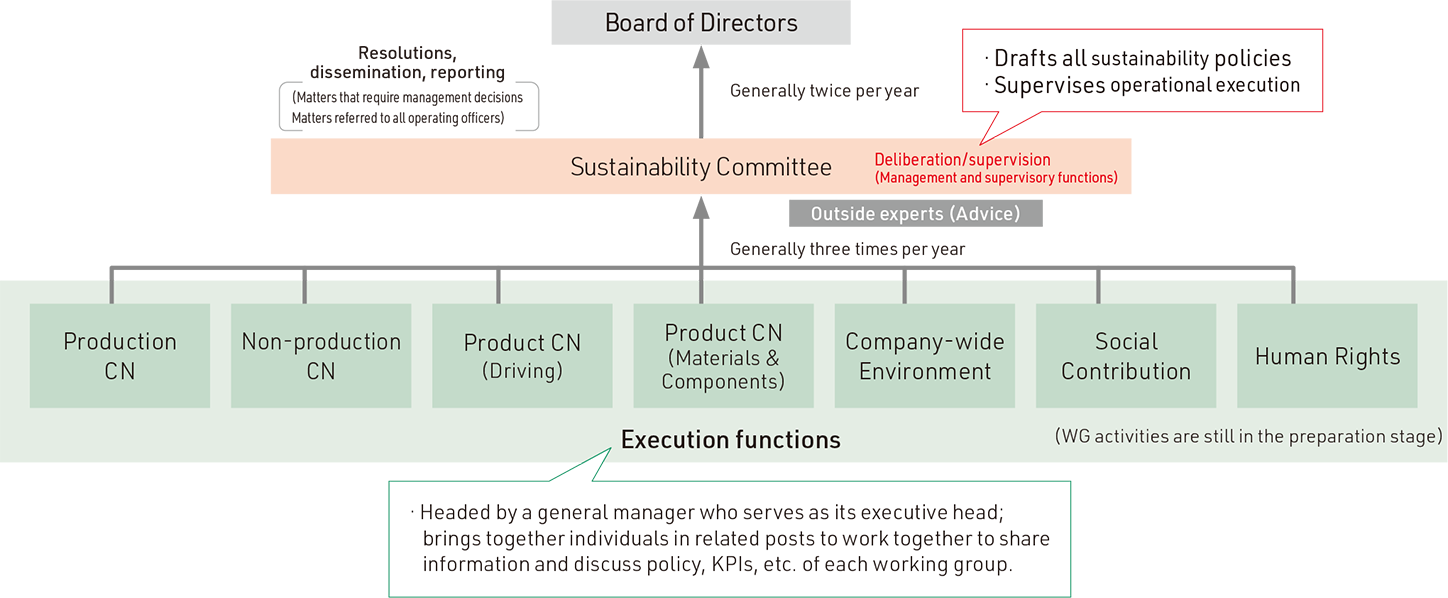Promotion of Sustainability
Sustainability Initiative Implementation Methods
To achieve our mission of staying close to customers and enriching their lives, we believe implementing the three steps described below will lead to the realization of a sustainable world that leaves no one behind.
Sustainability Promotion Structure
As the automobile industry undergoes what is said to be a once-in-a-century transformation and companies strongly need to contribute to solving social issues including respect for human rights and environmental conservation, Daihatsu has set up a Sustainability Committee and working groups (WG) with operational execution functions to enable the steady implementation of sustainability initiatives in response to those demands.
The Sustainability Committee is responsible for proposing policies related to Daihatsu’s sustainability initiatives, their deployment to Daihatsu and its affiliated companies, and supervising and providing advice on the progress of initiatives in response to those policies. The executive vice president chairs the committee and its members are all chief officers, personnel responsible for sustainability at main overseas production sites, and the full-time Audit & Supervisory Board members. The committee also works to expand and enhance Daihatsu’s sustainability initiatives in accordance with the “Toyota Supplier Sustainability Guidelines” as members of the Toyota Group.
Headed by a general manager who serves as its executive head, each working group brings together individuals in related posts to work together to share information and discuss policy, KPIs, and other topics. The four Carbon Neutrality (CN) Working Groups examine and promote CO2 emission reduction from a variety of angles. We have also established a Company-wide Environment WG and a Social Contribution WG. We also take part in human rights activities.
Our sustainability activities are the subject of periodic reports on the status of progress to the Board of Directors, where we receive feedback that we use to improve those activities. Under this structure, we are staying close to customers and other stakeholders while promoting sustainability initiatives through activities unique to Daihatsu.
Establishing Committees to Supervise and Provide Advice on Individual Executive WGs and Operational Execution Status
Tasks of Each Working Group
| Production CN WG |
|
| Non-production CN WG |
|
| Product CN (Driving) WG |
|
| Product CN (Materials & Components) WG |
|
| Company-wide environment WG |
|
| Social Contribution WG |
|

